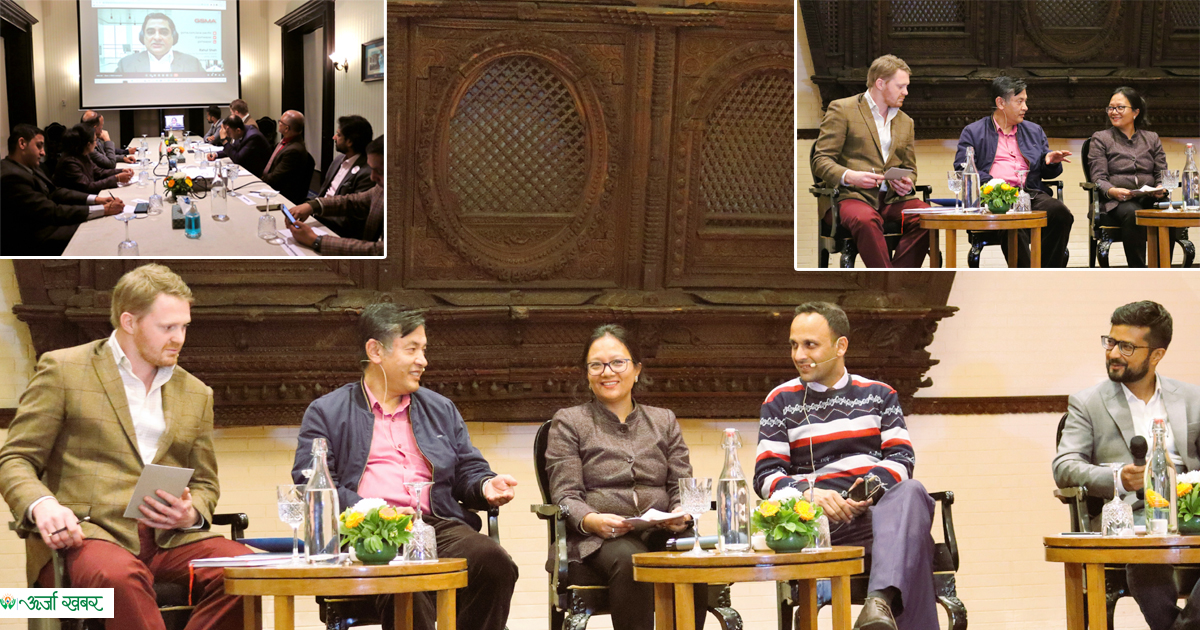
Kathmandu: Gham Power, GSMA Digital Utilities, and Diyalo staged a one-day gathering focused on exchanging knowledge and networking at the Yak & Yeti Hotel in Durbarmarg, Kathmandu.
The event, which focused on Improving Urban Energy and Water Services in Nepal, comprised both roundtable and panel discussions. Over 75 attendees participated in the event and provided valuable insights and contributed to the advancement of Energy and Water Services in Nepal.

The opening segment of the event involved a roundtable featuring 13 distinguished speakers who conversed on the current challenges of urban energy in Nepal, the potential opportunities to counter these challenges through digitization, and the crucial role of public-private- partnerships in energy to facilitate the scaling of energy digitization.
The discussion was highly productive and led to the generation of significant solutions aimed at addressing the hindrances to the progress of Energy and Water Services in Nepal. The outcome of the discussion emphasized the Importance of developing new strategies, including the implementation of smart card systems and the adoption of Digital Metering, to tackle the challenges associated with energy digitization and storage in Nepal.

Similarly, the latter half of the event consisted of panel discussions where four keynote speakers engaged in discussions on the opportunities to counter challenges related to Urban Energy in Nepal. The speakers explored how the utilization of open data structures could address many barriers to energy and how the participation of the private sector in energy distribution could improve transmission and distribution (T&D).
The attendees of the event were also an integral part of the discussions, as they actively participated in the conversation by offering their own ideas and taking note of the valuable insights they acquired during the panel. The discussions resulted in a consensus among the attendees that the decentralization and digitization of energy is the key to resolving energy challenges.
The discussions also touched upon the potential for innovative approaches, such as the application of artificial intelligence in meter reading, and the need for policymaking that is favorable to the private sector as well as the Nepal Electricity Authority.
At the conclusion of the proceedings, the participants consented to several solutions that can be executed to address the challenges. These challenges included the scarcity of data and transparency, the fluctuating energy demands, and the context of climate risks.
The group reached a conclusion that digitization can serve as an effective means of recording data, reducing the disparity between energy demand and supply, helping to flatten the curve, and rendering energy prices more affordable.
Contributed by Sijerina Nepal, Content writing and marketing intern.